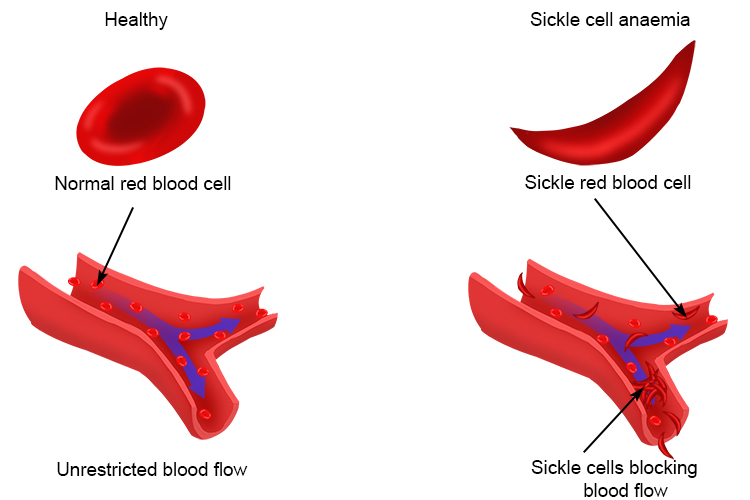Genetic diseases
Genetic diseases are caused by abnormalities in a segment of DNA – your genes.

A gene (jeans) is a segment of DNA. Abnormalities in jeans (genes) cause genetic diseases.
While in many cases the faulty genes are inherited from one or both parents, other genetic diseases arise from changes in genes after exposure to environmental factors. For instance, cancer is a genetic disease that can be caused by exposure to tobacco smoke or high levels of nuclear radiation.
However, most people think of genetic diseases as being inherited.
Examples of inherited genetic diseases
1. Huntington’s disease – affects the nervous system, causing involuntary movements, emotional disturbance and memory loss.
2. Cystic fibrosis – results in production of mucus that is thick and sticky, leading to blockages in lungs and airways.
3. Sickle cell anaemia – red blood cells are distorted into a sickle shape (like a new moon) and are then prone to rupture and also block blood vessels. The result is anaemia – insufficient red blood cells – which causes weakness.

Sickle cell anaemia is an example of an inherited genetic disease.




